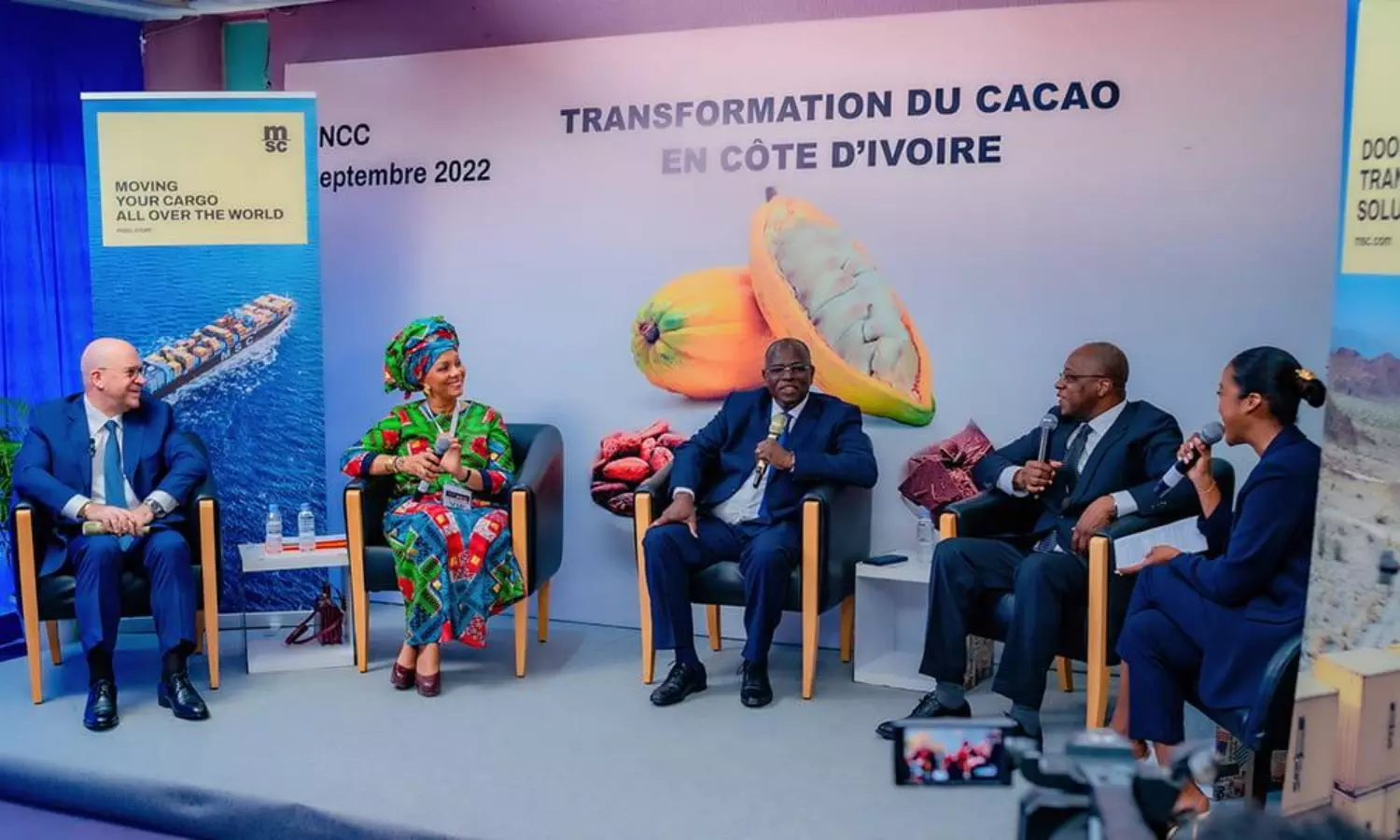MSC reaffirms commitment to Côte d'Ivoire
70% cocoa beans come from Côte d'Ivoire, Ghana, Nigeria and Cameroon & the sector is a major focus area for MSC.

The Coffee and Cocoa Council of Côte d'Ivoire is expecting to reach a grinding capacity of 1,072,000 tons by 2023, or more than 50% from the current level, and have set a new target of 100 percent increase by 2030.
"Our ambition is to go beyond grinding to develop the chocolate industry in our country," says Yves Koné Brahima, Director General, The Coffee and Cocoa Council. "On the value scale, 72 percent goes to the chocolate industry, brands and distribution. We must ensure that our country can access this essential segment of the value chain."
Brahima was speaking at a panel discussion hosted by the Mediterranean Shipping Company (MSC) about the Côte d'Ivoire local cocoa processing, supply chain and export during the 8th Cocoa and Chocolate Days (JNCC) at the Ebrié Room of the Heden Golf Hotel in Abidjan.
The theme of the National Cocoa and Chocolate Days organised by the Coffee and Cocoa Council was local processing, opportunities for chocolate artisans.
"The processing of cocoa into semi-finished products has increased thanks to a set of mechanisms put in place since the 2016-2017 campaign," says Michel Manlan, representing the Minister of Commerce, Industry and SMEs. "These included making reserves on production for local processing, removing the adjustment of certain items in the price scale for the benefit of grinders, and returning to the mechanism of the Single Exit Duty differentiated, applied to processed cocoa products. This is in addition to the investment code and the availability of energy, which makes Côte d'Ivoire one of the most attractive countries in the region."
Françoise Mariame Koné Bédié, Executive Director, GEPEX adds: "We are committed to working with the government to make this local processing ambition a success. We also advocate that the agreement with the state on the benefit of the single duty of exit is differentiated for types of semi-finished products from the processing of cocoa may be further extended to accelerate efforts and strengthen investment in processing. I also hope for the development of local consumption and encourage local actors to show creativity."
"At MSC we will continue to support Ivorian cocoa in this local processing approach by providing tailored transport solutions that reach cocoa customers where they are," says Fabio Politi, Managing Director, Côte d'Ivoire, MSC. "There will be no transition for MSC, which is ready with real expertise to offer logistics solutions that allow for the processing of both cocoa beans and semi-finished or finished products such as cocoa powder, butter or liquor."
Given that 70 percent of the world's cocoa beans come from four West African countries, namely Côte d'Ivoire, Ghana, Nigeria and Cameroon, this sector is a major focus for MSC, Politi added.


